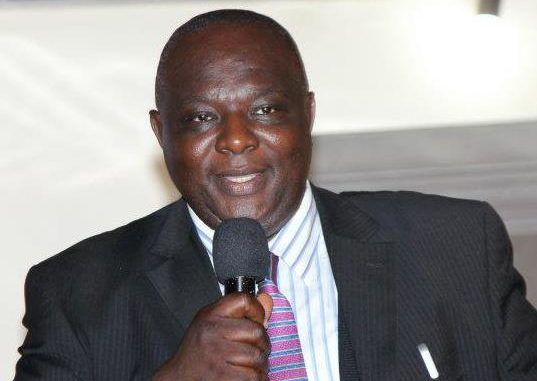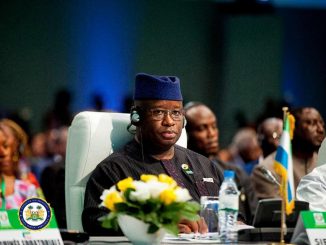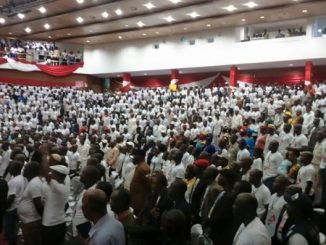
By Titus Boye-Thompson :
Strategic Media & Development Communications Unit :
The spate of ultimatums handed out to Government recently underlines a fissure in the relationship between civil society and Government but not in the way most observers have decided to comment. There is an unspoken memorandum of understanding between Government and non-state actors to the extent that when Government is exuding a certain level of control on state affairs and undertakes the delivery of public functions it tends to satisfy civil society as to its effectiveness. The giving of ultimatums from civil society is an indication more so of the ineffectiveness of political system to correct itself rather than an indictment of Government. The functions of Government are clearly outlined within the Constitution. Those duties cannot be usurped by civil society. On the other hand, civil society has a role within the exercise of public functions as a barometer for public acceptability, transparency and appropriability of government functions vis a vis effective command and control of service delivery mechanisms within the state machinery. In the event, the absence of a functional opposition opens up the way for the civil society to appropriate the functions of taking Government to task for non performance or the improper conduct and exercise of power and authority.
While the opposition parties squabble over their internal crises, Government tends naturally towards an entrenchment of power dynamics. The service delivery functions and transparency issues created by low capacity, weak infrastructure or otherwise unresponsive complaints and problem solving solutions then tend to become open area for interference by those who consider themselves to be the conscience of humanity. It is irrelevant in this case whether civil society is acting ultra vires, whether they possess the capacity to undertake the same functions they query or whether in fact they are capacitated to undertake a role swap with political intermediaries on issues that are purely political or otherwise outside the remit of their engagement both with communities and Government. In short, have civil society bitten off more than they can chew or has the state sunk so low as to allow for its ardent preserve of harnessing resources for the benefit of all to be hijacked by uncommitted actors?
Corruption within the body politic could very well be a matter for concern here, especially when the arguments of non state actors tend towards the inability of state agencies to meet their expectations. In a society such as this, the issues that would always accrue to its weak systems and poor infrastructure for accountability and transparency would always have its root on a non performing and weak response mechanism to matters that gravely affect communities. Non state actors have tended to wade in head first into areas of state responsibility but in such parochial ways as to have bridled their interventions with an inherent corruption of purpose rather than on the basis of a selfless will to serve the greater good. Having said this, it is not to be construed that the positions of civil society in the recent past are effectively baseless but for an acceptance that even if they have not demonstrated that they had the mandate to proceed as they have done, there are some basic mechanisms that must be in place to arrest these developments so that they do not recur.
Government has responded to these ultimatums in a responsible manner. The business of government can only be well adjusted within the confines of constitutionality. There are institutions of state with the relevant responsibilities to engage on state affairs and while these institutions are not rendered defunct, the interference by non state actors may tend to muddy the waters even more so than accord for clarity in the respective duties and obligations of all parties. The political opposition must take control of their constitutional obligation and start acting as an opposition and thereby restrict or otherwise constrain non state actors from moving into their patch. A responsible government has extended its consideration to the matters raised by effecting a press statement and attenuating its willingness to enter into a discourse to explore better ways of working both within its own precept so as to secure a fuller engagement with civil society.
Every democracy would have its own story to tell and the mark of a progressive democracy is in tandem with its ability to listen, learn and effectuate the concerns of its citizens. Civil society has alerted Government to specific areas of concern for them in a manner unbecoming but essentially effective. It is clear that Government has taken cognizance of the issues they have raised and even when Government is setting out clear blue water between its public service delivery functions and the call of civil society as the consciousness of the under-served, Government is still committed to improving things for the better.
In a final observation, most developed countries deter their civil society organisations from engaging in political campaigns or work that is overtly political in context. By definition, some of the activities of NGOs in this society may very well not qualify for state funding or in fact funding from most philanthropists because of the overtly political nature of certain functions. In this society, the level of sophistication in dealing with civil society affairs tends to present a free range for practice. In the categorization of civil society, there is a dearth of regulation, a blurring of the lines of engagement and even in terms of classification, most people are unsure of the functional nature of civil society as agitators or as activists, least of all as community engagement facilitators. In the event, political activities by civil society are not necessarily off limits in so far as their practical engagements are determined by State or institutional funding.
President Ernest Bai Koroma has always held on to his credentials of being a listener, avowed to keep and maintain his record as a just and pragmatic leader, with the will to serve. His concern and acceptance of the need to engage with the civil society is indicative of a learning and responsible leadership. This being a fledgling democracy, the building blocks to a more sustainable and secure future lies on the extant efforts of each succeeding leadership and how the vision for change and prosperity is integrated into decision making at all levels. To react to an ultimatum or a string of such does not accord for weakness rather it does signal a desire to be inclusive. President Koroma has made it a point of duty to engage as widely as possible and for his Government to move so swiftly to deal with this situation is a clear case of responsible leadership. However, the mechanics of maintaining the State takes precedence over any desire to usurp responsibilities of others and the absence of a functional opposition is a clear signal of the progress and achievements scored across the country. The Americans would say,




Leave a Reply